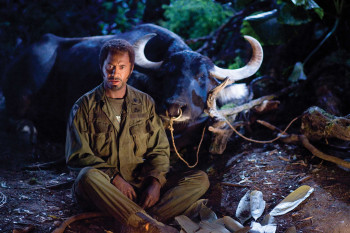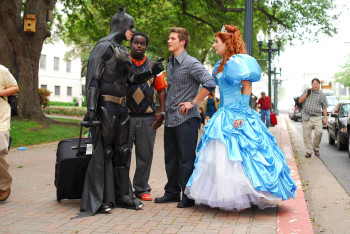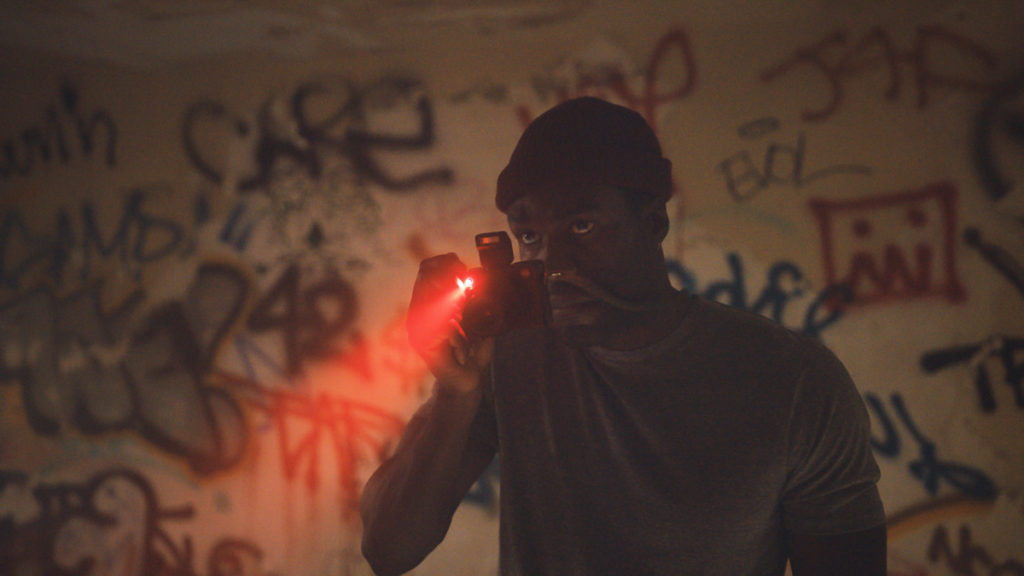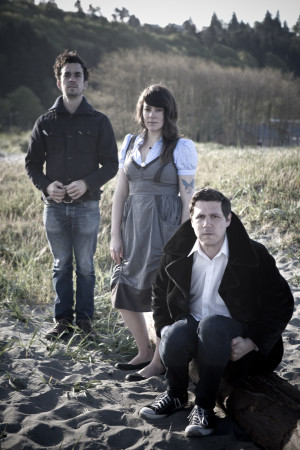A Well-Marked Path to Hell
House of Sand and Fog features one shooting, one murder (distinct from the shooting), one suicide, two failed suicide attempts, one hostage situation, an aborted arson, one incident of physical domestic violence, one incident of verbal domestic abuse bordering on physical, and an affair. And the amazing thing is that the portrayals are convincing enough that all this feels only a touch silly.

 While I still don’t really understand the Twitter phenomenon, I’ve loved using the 140-character limit for extreme forced concision. The aim is always to pack these ridiculously short reviews with enough meaning that I don’t feel guilty about never writing more about a particular movie or television show. I would never say that 140 characters is sufficient to discuss much of anything – let alone a feature film – but it’s a great if arbitrary writing exercise: How much can you say within Twitter’s confines? For the most part, I’ve been happy with the results. But with Tell No One, I feel that I need to explain myself.
While I still don’t really understand the Twitter phenomenon, I’ve loved using the 140-character limit for extreme forced concision. The aim is always to pack these ridiculously short reviews with enough meaning that I don’t feel guilty about never writing more about a particular movie or television show. I would never say that 140 characters is sufficient to discuss much of anything – let alone a feature film – but it’s a great if arbitrary writing exercise: How much can you say within Twitter’s confines? For the most part, I’ve been happy with the results. But with Tell No One, I feel that I need to explain myself. In the 1985 HBO mockumentary The History of White People in America, co-writer and host Martin Mull offered the world mayonnaise-loving WASPs – suburbanites who had lost any sense of their roots, to the point that one child’s understanding of his own heritage was limited to the streets on which he and his parents had lived. White people, the show seemed to be saying, are beyond ethnicity and culture. Mull doesn’t see a meaningful connection between that work and his paintings, which are presently touring the country in a retrospective. The only link, he said in a recent interview, is that they reflect his childhood in Ohio. “It comes from the same vein,” he said, “the same mother lode.”
In the 1985 HBO mockumentary The History of White People in America, co-writer and host Martin Mull offered the world mayonnaise-loving WASPs – suburbanites who had lost any sense of their roots, to the point that one child’s understanding of his own heritage was limited to the streets on which he and his parents had lived. White people, the show seemed to be saying, are beyond ethnicity and culture. Mull doesn’t see a meaningful connection between that work and his paintings, which are presently touring the country in a retrospective. The only link, he said in a recent interview, is that they reflect his childhood in Ohio. “It comes from the same vein,” he said, “the same mother lode.” If Tropic Thunder repeats as Box Office Power Rankings champion this weekend, it will match The Dark Knight with titles in four consecutive weeks. (Iron Man topped the charts for five straight weeks earlier this summer.) This points out one of the flaws of our system: Box Office Power Rankings have no sense of scale.
If Tropic Thunder repeats as Box Office Power Rankings champion this weekend, it will match The Dark Knight with titles in four consecutive weeks. (Iron Man topped the charts for five straight weeks earlier this summer.) This points out one of the flaws of our system: Box Office Power Rankings have no sense of scale. Yesterday, I
Yesterday, I  In the pilot episode of Fringe, one bit of dialogue struck me as so wrong that I backed up to transcribe it. An FBI agent (Anna Torv) is speaking to the man who’s supervising a mysterious case in which everybody on an intercontinental flight arrived with only their bones intact. Earlier in the episode, we had seen Torv’s character in bed with another agent, whose life now hangs in the balance after being attacked with a similar flesh-eating agent. Here’s what the supervisor says: “It would be nice to think that your tenacity in this case is a byproduct of a remarkable and robust professionalism.” That’s a good line.
In the pilot episode of Fringe, one bit of dialogue struck me as so wrong that I backed up to transcribe it. An FBI agent (Anna Torv) is speaking to the man who’s supervising a mysterious case in which everybody on an intercontinental flight arrived with only their bones intact. Earlier in the episode, we had seen Torv’s character in bed with another agent, whose life now hangs in the balance after being attacked with a similar flesh-eating agent. Here’s what the supervisor says: “It would be nice to think that your tenacity in this case is a byproduct of a remarkable and robust professionalism.” That’s a good line.
 For somebody who’s been compared favorably to Bruce Springsteen and Neil Young and Nick Drake,
For somebody who’s been compared favorably to Bruce Springsteen and Neil Young and Nick Drake, 